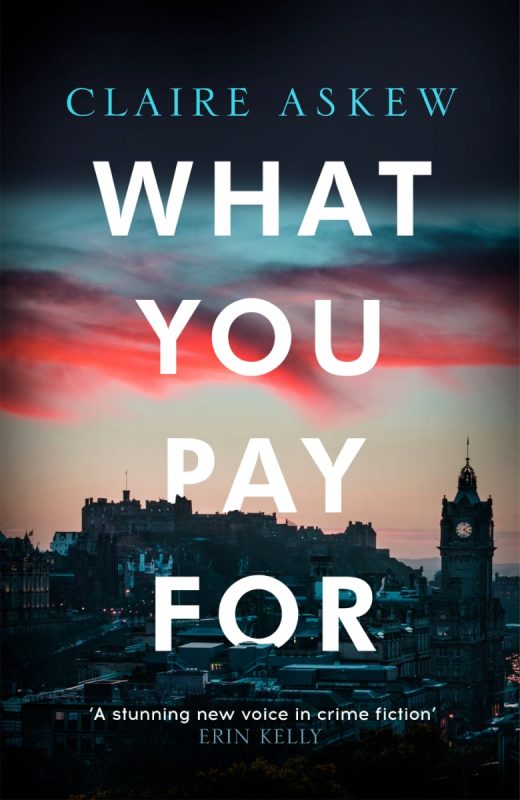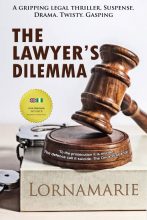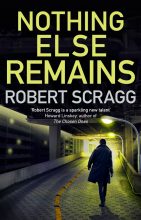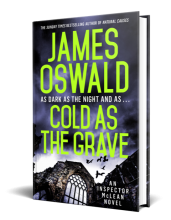Extract
‘DI Birch.’
Birch was dreaming. It was one of those dreams where she knew that it was a dream, but she was going along with it anyway. It was night. She was standing on the Portobello promenade, outside the front gate of her own house. She was looking towards the city – looking along the little terrace of houses that, in the daytime, had neat square gardens with bedding plants and friendly cats. Her terrace was a good place, a place she loved, and she’d longed to live there ever since she was a tiny child. But the dream had changed it. The houses were in darkness. Birch knew, somehow, that no one lived in any of them. She was the only one there.
‘DI Birch.’
There was a storm. The streetlamps along the prom were dimmed, like old gas-lights, and in the tarry sky above, lightning whip-cracked in giant arcs. She felt herself jostled by a hard wind. She could hear the sea – up close by the prom like it got at high tide – but it sounded violent. Beside her, the salt-crusted bars of her garden gate chattered in their fixings.
‘Birch.’
Someone was walking towards her, up the prom. He began as a tiny doll of a figure, and moved slowly, but she knew who he was. As he got closer, she could see the wind yanking his hair around, though his face was indistinct. She realised his coat was tattered, the bottoms of his trousers scuffed, and his feet were bare. He must be cold, she thought. He must be so cold. He was still young: the age he’d been when he’d walked out of her life and vanished, though thirteen years had passed. No, fourteen. Fourteen years ago today: even in the dream, she corrected herself. At last, he reached her. He stopped about four feet away and they stood there, looking at one another, as the sea hissed beyond the railings and ridiculous Hammer Horror lightning opened up the sky.
She opened her mouth to say Charlie, but there was a colossal crash, right beside her head, as though someone behind her had thrown something.
‘Helen!’
Birch flinched awake. DCI McLeod had brought his palm down hard on the desk, where about half an hour ago she’d put her head down – just for a minute, just to rest her eyes. Now he was standing over her: watching as she jolted upright in her chair, aiming for nonchalance and missing by a country mile.
‘Sir.’
It was the first time that night that she’d looked at him properly, and she realised McLeod looked strange. His usual bespoke suit had been replaced by a black turtleneck and dark grey jeans. They looked wrong on him. He’d had his massive stainless-steel watch on throughout the raid though, no doubt a subtle hint as to who the commanding officer was. He just oozed authority, somehow, like background music he hadn’t worked out how to switch off. No matter what had gone down, Birch doubted he’d have been willing to dive into the harbour.
‘Sweet dreams, DI Birch?’
Birch could feel herself turning red. ‘I’m sorry, sir.’ She raised one hand to her cheek to check she hadn’t drooled, or sat up with a Post-it stuck to her face. ‘I just nipped in here, to – um. I mean, I was up at two thirty.’
McLeod made a snort sound. ‘We were all up with the lark this morning, Helen.’
Yeah, all right, she thought. Crossed off the shortlist for Cop of the Year once again, I get it.
McLeod raised an eyebrow, and for a hot, panicked second Birch thought she might have actually spoken out loud.
‘Not getting much sleep at the moment?’
There was the cruel hint of a smile on his face. Oh God. Did he know about Anjan? No, surely – there was no way he could know.
Birch lifted her chin, began to right herself. ‘Nothing out of the ordinary.’ She thought for a half-second and then added, ‘Congratulations, sir. You ran quite the operation.’
It worked. She saw McLeod let go of his annoyance and push out his chest, just a little.
‘Thank you, Helen,’ he said. ‘There was a fine team at work this morning. I take no credit on a personal level.’
Liar, Birch thought, but she said nothing more. She rolled out what she hoped was a genuine-looking smile.
‘Okay.’ He’d lost interest in her nap now. She was out of the doghouse. ‘Full briefing in fifteen minutes. I suggest you get some coffee in you.’
She watched him stride out of her office, balled her hands into fists, and rubbed her eyes. ‘Stick up the arse,’ she whispered, blinking away stars from her vision. ‘Fucking brilliant, Helen.’
She was in the Ladies, fixing her face at the sink, before she remembered the dream. Her dreams about Charlie were always weird, but that one had been weirder than most. That it happened on his anniversary was natural: she’d been thinking about him a lot, these past few days. She didn’t talk about him much any more: she found that telling people I have a brother who disappeared one night with only the clothes on his back, hasn’t been seen since, and is presumed dead could be a bit of a mood killer. But she suspected that not talking about him, shelving him in the back of her mind wherever possible, only made the dreams more vivid. The fact that he’d been dressed in rags, and his feet were bare – that spooked her. She didn’t like to think what it symbolised.
She patted a bristly paper towel over her face and avoided her own eyes in the mirror. She still didn’t understand how someone just disappeared – how even a senior police officer could search for over ten years and fail to find a trace. It was rare, in this day and age: there were digital footprints, bodily fluids, clues. Charlie was a smart boy but he wasn’t that clever. He ought to have left something behind. Dead or alive, she should have found him by now.
She held her hands palms-down under the power dryer, watched as the blast of lukewarm air pooled and dented the skin. Against her hip, her phone buzzed, and before she’d really realised what she’d done, she found herself back inside the cubicle, putting down the lid so she could sit and read. She was thinking of Amy earlier, peering over her phone screen – thinking about McLeod asking why she hadn’t been sleeping well. No one could know about Anjan yet. She couldn’t let anything jinx this.
Just heard, the message read. Congratulations, Detective Inspector! Make sure you’ve got something to charge him with – clock’s ticking. Birch rolled her eyes at this – typical lawyer. Hope it’s not feeling like too much on Charlie’s anniversary. Go easy on yourself. A x
Birch looked at the glowing screen in her hand. She looked at it for so long that after a while it faded to black and the phone locked itself. Go easy on yourself. Anjan was being kind, but she regretted telling him about Charlie. She’d felt the anniversary of her brother’s disappearance drawing closer for weeks now, and she’d been using it as an excuse for things. She’d never have gone for that first drink with Anjan, for example, had she not felt it so keenly. She that knew this – what? Relationship? – was inappropriate. But it’s Charlie’s anniversary next week, she’d thought, saying, yes. It’s just dinner, and I’ll be stronger in a few days. I can put a stop to it then. When they’d gone for a drink afterwards, the thought had been, Sure, I don’t want to go home yet. And then everything had got hazy, and she’d found she was telling Anjan all about her little brother: the boy who walked out of his uni halls one evening – carrying only a wallet and the clothes he stood up in – and never came home.
‘Not a trace, even now,’ she’d said, putting her hands on the table in front of him, palms up, a beseeching gesture. ‘Fourteen years next week, and not a trace.’
After that, Anjan was kind, and kissed her. And then she was happy to go home, as long as she didn’t have to go there alone.
Birch cringed, wanting to stop the flashbacks before they went any further. She thumbed the phone back to life so she could see the time: 8.25 a.m. Anjan would be at work by now, assuming he’d made allowances for the longer commute from her place. He will have, she thought. She and her fellow officers had long ago nicknamed Anjan Chaudhry ‘the Brain’. And here she was, feeling – in a slightly uneasy, fluttery way – happy that he’d put an x on his text. Ridiculous.
Briefing in five, she wrote back. Thanks, Anjan. Sorry if I got weepy on you last night. She didn’t remember crying, but she also wouldn’t have put it past her last-night self. Unsure of how to sign off, she wrote, Keep in touch. H x She hit send, and clattered up and out of the cubicle before she could regret any wording.
Briefing in five. Christ. McLeod would be insufferable. And Anjan was right: if they couldn’t find something sharpish to charge Solomon with, he’d be sprung like a hare from a trap. This man had friends everywhere, and decades of favours just waiting to be called in. Whatever they had on him had to stick, or Operation Citrine would have been a costly embarrassment, in more ways than she cared to count.
She laid her phone down on the sink’s Formica surround. She was appraising the violet bags under her eyes – procrastinating, she knew, in her last moments of freedom before the briefing – when the phone began buzzing against the counter, making her jump. As she reached to swipe ‘answer’, she felt almost certain that the voice on the other end would be her mother, calling as she always used to on Charlie’s anniversary to speak tearfully and in circles while Birch clucked and soothed. Her mother, demanding to know what her daughter had been doing all these years – wasn’t this why she joined the police force anyway? How could it be taking this long?
But no – Birch shook her head. It couldn’t be her mother, for the simple reason that she’d died nearly two years ago. She’d gone to her grave still clinging to a bone-deep conviction that Charlie was alive, that he had to be alive – and despairing of the useless daughter she’d entrusted to go out into the world and find him.
The screen told her the number was withheld.
‘It’s Birch,’ she said.
On the other end of the line, there was a sound almost like the start of a laugh, cut off. A strangled noise. Then silence.
‘Hello?’
Birch could hear breathing now: not loud, but ragged. The sound of a person laughing, but trying not to be heard. Laughing or crying, she thought, as she listened. It could be crying.
‘Who is this?’ she demanded, and then realised she sounded like every person in every film and TV show who got a call from someone who sat on the line and refused to speak. She took a long breath, and listened to the distant, odd wheezing.
‘Okay,’ she said. ‘If you’re not going to talk to me, I’m going to hang up. Got it?’ She waited. ‘Okay,’ she said again, and lowered the phone, swiping to end the call.
0:42 minutes, the phone informed her. Call from Number Withheld.
Birch looked up again, at her reflection. She pulled a smirk, a what’s-wrong-with-people-eh? sort of expression. But in the look the mirror threw back, she could see a touch of fear. It had been years since she’d had a crank call, and it had never happened on her work phone. Random people shouldn’t have that number. It might have been an accidental dial, she told herself. But something scuttled down her spine like a cold spider. This was already far from her average Monday: the middle-of-the-night start, the dawn raid, then Charlie wandering through her subconscious mind to say, Remember you still haven’t found me. Now this. She was keen to get to the briefing: keen to be out of this dripping, windowless space and among other people. She switched the phone to silent mode. Without looking back at her own eyes, she ducked out of the bathroom and into the comforting strip-lit glare of the corridor.


 Listen on Audible
Listen on Audible

 audible
audible

